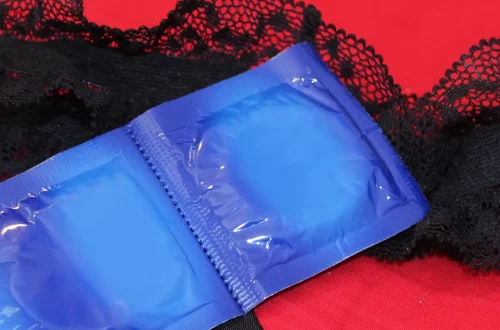
The Benefits of Using Hypoallergenic Cat Litter for Sensitive Cats
In the world of pet care, finding the right products for our furry companions can sometimes feel overwhelming. With a myriad of options available, cat owners are often left wondering which products are best suited for their cats’ unique needs. This is especially true for those with sensitive cats who may experience allergies or irritation from common materials found in conventional cat litter. The environment in which our pets live plays a crucial role in their overall well-being, and the right litter can significantly impact their health and comfort.
Hypoallergenic cat litter has gained popularity among cat owners who are concerned about their pets’ sensitivities. These specialized litters are designed to minimize allergens and irritants, providing a cleaner and more comfortable space for our feline friends. As we delve deeper into the benefits of hypoallergenic cat litter, it’s essential to understand not only the advantages it offers for sensitive cats but also how it can enhance the overall litter experience for both pets and their owners. The choice of litter can affect everything from odor control to ease of cleaning, making it a vital aspect of responsible pet ownership.
Understanding Hypoallergenic Cat Litter
Hypoallergenic cat litter is specifically formulated to reduce the potential for allergic reactions in cats. Traditional litters often contain dust, fragrances, and other additives that can irritate a sensitive feline’s respiratory system or skin. Hypoallergenic alternatives are typically made from natural, non-toxic materials that are less likely to cause adverse reactions.
One of the primary ingredients in many hypoallergenic litters is recycled paper or wood pellets. These materials are not only sustainable but also produce minimal dust, making them a safer choice for cats with allergies. Additionally, many hypoallergenic litters are free from added fragrances and chemicals, which can further aggravate sensitivities.
For cats predisposed to respiratory issues or skin irritations, using hypoallergenic litter can lead to noticeable improvements. Owners often report that their cats exhibit fewer signs of discomfort, such as sneezing, excessive grooming, or skin rashes. This type of litter allows sensitive cats to use their litter box without fear of triggering an allergic reaction, thus promoting a healthy and stress-free environment.
Moreover, hypoallergenic cat litters often provide excellent absorbency and odor control. This is essential not only for the cat’s comfort but also for the owner’s peace of mind. With effective odor management, cat owners can maintain a fresher home environment, which is particularly beneficial for those living in smaller spaces.
Choosing the right hypoallergenic litter can also be a matter of trial and error, as different cats may react differently to various brands and formulations. However, the investment in a suitable litter can significantly enhance the quality of life for sensitive cats, making it worth the effort for concerned pet owners.
Benefits for Cats with Allergies and Sensitivities
Cats with allergies or sensitivities can face a range of health issues when exposed to the wrong type of litter. The use of hypoallergenic cat litter can mitigate these problems effectively. One of the most significant benefits is the reduction in respiratory issues. Traditional litters often produce dust clouds that can irritate a cat’s lungs, especially in breeds that are already predisposed to respiratory conditions. By switching to a hypoallergenic option, owners can create a cleaner environment that minimizes the risk of respiratory distress.
Skin irritations are another common concern for sensitive cats. Conventional litters, especially those with added fragrances, can lead to rashes or allergic reactions. Hypoallergenic litters, which are usually fragrance-free and made from gentle materials, can help prevent these unpleasant reactions. This not only improves the cat’s comfort but also reduces the need for veterinary visits related to skin issues.
Moreover, hypoallergenic cat litter often possesses superior clumping abilities, making it easier for owners to maintain a clean litter box. Regular cleaning is crucial for all cats, but particularly for those with sensitivities, as a dirty litter box can exacerbate their issues. Hypoallergenic litters can absorb moisture effectively, leading to less mess and odor, thereby encouraging the cat to use the litter box consistently.
Another notable benefit is the peace of mind that comes with knowing you are providing your sensitive cat with a safe and comfortable environment. Pet owners often feel a sense of relief when they see their cats thriving and free from the discomfort that can come from traditional litters. This positive change in behavior can enhance the bond between pet and owner, making for a happier home overall.
In summary, the switch to hypoallergenic cat litter can lead to significant improvements in the health and well-being of cats with allergies and sensitivities. By understanding the specific needs of these cats and choosing the right products, owners can create a nurturing environment that supports their feline friends.
Environmental Considerations
The choice of cat litter goes beyond the immediate health benefits for sensitive cats; it also has implications for the environment. Many hypoallergenic litters are made from sustainable materials, making them a more eco-friendly option compared to traditional clay litters. The production of conventional clay litters often involves strip mining, which can lead to significant environmental degradation. In contrast, hypoallergenic options, such as those made from recycled paper or corn, are typically biodegradable and have a smaller carbon footprint.
Using sustainable litters not only supports environmental health but also aligns with the values of many modern pet owners who are increasingly aware of their ecological impact. By choosing hypoallergenic cat litter, pet owners can contribute to reducing waste and promoting sustainable practices within the pet care industry.
Additionally, hypoallergenic litters often produce less dust and waste, meaning that there is less litter to end up in landfills. Many brands have also adopted eco-conscious packaging, further reducing their environmental impact. By opting for these products, cat owners are making a choice that benefits not only their pets but also the planet.
It’s essential to consider the entire lifecycle of the litter, from production to disposal. Many hypoallergenic litters are designed to be compostable, allowing eco-conscious pet owners to dispose of them in a way that returns nutrients to the soil rather than contributing to landfill waste.
In conclusion, opting for hypoallergenic cat litter not only provides immediate health benefits for sensitive cats but also supports environmental sustainability. By making informed choices about pet products, owners can promote both the well-being of their pets and the health of the planet.
Choosing the Right Hypoallergenic Cat Litter
Selecting the ideal hypoallergenic cat litter for your sensitive cat involves considering several factors. First and foremost, it’s important to assess your cat’s specific needs and sensitivities. Cats can react differently to various materials, so it may take some experimentation to find the perfect match.
When shopping for hypoallergenic litter, look for products that are labeled as dust-free and fragrance-free. These features are crucial in minimizing irritation for sensitive cats. Additionally, consider the texture and type of litter. Some cats prefer clumping litters, while others may favor non-clumping options.
Another significant factor is the absorbency and odor control capabilities of the litter. High-quality hypoallergenic litters should be able to absorb moisture effectively and neutralize odors without the need for added fragrances. Reading reviews and seeking recommendations from fellow cat owners can provide valuable insights into which brands perform best.
Price is also an important consideration, as hypoallergenic litters can vary significantly in cost. While it may be tempting to go for the cheapest option, investing in a higher-quality product can lead to better results in terms of your cat’s health and comfort.
Lastly, always pay attention to any changes in your cat’s behavior or health after switching to a new litter. If you notice signs of distress, such as excessive grooming, sneezing, or reluctance to use the litter box, it may be necessary to try a different brand or formulation.
In conclusion, choosing the right hypoallergenic cat litter is a crucial decision that can significantly impact the health and happiness of sensitive cats. By taking the time to understand your cat’s needs and carefully evaluating available options, you can make a choice that fosters a comfortable and healthy living environment for your feline friend.
**Disclaimer:** This article is not intended as medical advice. For any health-related concerns regarding your cat, please consult a veterinarian.




